|
One of my most favorite techniques for improving caller motivation is to write letters to local businesses to ask for “gifts-in-kind” to use as prizes for outstanding callers. That idea is far from new, but there is one tweak that I think many haven’t thought of that makes all the difference in terms of success.
Many universities and colleges commission economic impact studies that quantify the value that these higher educational institutions have on their local economies. These studies usually herald impressive numbers, from the number of jobs provided by the university to the total estimated dollars of economic impact. Here are a few examples to show you what you’re looking for:
If you can get your hands on a study like this specific to your institution, you will be able to craft a letter that is optimally successful. Some studies have a statistic that actually shows how much money university students spend in the local marketplace, like the ones from Notre Dame and South Carolina above. If you can get this figure, it’s clutch. The data from these sorts of studies will motivate the businessperson to get their business more in front of students. They will see what a significant portion of their business that students (and the university in general) represents. And you will be providing them with a quick and easy way to advertise to students. All they need to do is provided a few coupons for free merchandise or services and you will not only put them on your webpage or Facebook (or both) but you’ll give these out only to the top performers so they get to try their products. To find an economic impact study for your institution, start just by googling “economic impact study” and your institution’s name. If nothing comes up, contact the College of Business or Economic Development department at your institution and they may know of a study or where to find it. Some universities do a great job of promoting this important information and others don't exactly. It may be hidden away in some office of institutional research. Put it to good use. Do you solicit “gifts-in-kind” from local business for your phonathon? If you have a killer letter that you use, please share the text in the comments! 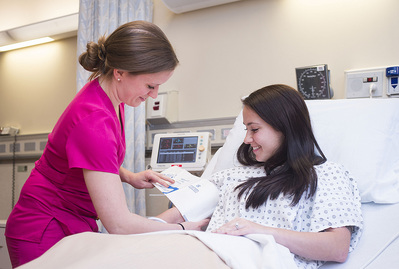 The concept of "grateful patient" fundraising has always fascinated me. How meaningful, how wonderful, how . . . . EASY to raise money from those who lives were saved by your institution! A team of specialists at your hospital saved someone's child from cancer and they have capacity. What a wonderful story! Of course, I know that it isn't that simple to raise money in healthcare fundraising. But, the stories of grateful patients are enticing and make those of us in higher education a bit jealous. Unfortunately, most stories are a bit less tangible than that in higher education. No matter what kind of organization you work for, I find it is a great exercise to reflect regularly on the question, "Who are your grateful patients?" Asking this questions drives you right to the core of your mission. Who is served by your institution? How does it change lives? These questions takes you deep into impact and narrative. This question leads you to the "Why?" In higher education, who are our grateful patients? Last week, I was composing a blog post about how philanthropic support has directly helped me in my life and career. We often think of students as our grateful patients and they are. But, more than that, it is our ALUMNI that are the grateful patients. Students who graduate and move out into the world changed by the education they acquired at our institutions. The stories of students work to connect our alumni to mission only if those stories activate the sense of gratitude that our alumni have for their own time at our colleges and universities. It's not mere nostalgia, it is a real and tangible linking back that our student narratives must do in order to invigorate the "grateful patient" sensibility of our alumni. They must see in the story of current students their own story and from there be able to project what their life might be like if their educational story was different. The phrase "make a difference" is overused and trite. However, if you want to find your grateful patients (who will be not only your best donors but your most enthusiastic advocates), you have dive into the real meaning of that phrase. How is someone's life path qualitatively different because your institution exists? If you don’t know Adam Grant, let me brighten your Monday. He’s a powerhouse business writer and an amazing TED talk speaker. Today I want to walk you through three takeaways from his book, Give and Take.
Grant states that people can be divided into givers, takers and matchers based on whether they are motivated by giving, getting or some combination thereof (respectively). In one chapter he looks at the concept of burnout and he ends up (of all places) in a university call center. He assessed whether the callers were givers, takers or matchers. He assumed that the takers would not be good at the job but is surprised to see that the way in the job is marketed (highest paying job on campus) and the way the motivation is structured ("win", "be the best") is actually highly motivating for the takers. Grant wonders what could be done to improve the results of the giver callers. What he finds is remarkable: spending 5 minutes reading letters from scholarship recipients motivated the giver-callers to close the performance gap between themselves and the taker-callers in ONE WEEK! So, Grant brought in an actual scholarship recipient to chat with a random group of callers about the impact that the funds they were raising had made in their lives. All callers (regardless of motivational type) saw a drastic increase in performance (as measured in calls per hour, number of minutes on the phone and dollars, which quintupled versus the control group). Givers saw an even more dramatic increase in performance. Then Grant writes a line that takes this lesson far beyond call center: “The turnaround highlights a remarkable principle of giver burnout: it has less to do with the amount of giving and more with the amount of feedback about the impact of that giving.” (Page 165). Wow! Takeaway #1: Many, if not most, of our donors are givers. So, what Grant is saying is that DONOR burnout is within our control. Make it your goal this year to make your donors as aware of the impact of their gift as possible. If 5 minutes reading a note from a scholarship recipient can make a huge difference in the performance of a student caller, what could consistent, impact-oriented messaging around these issues do for your donor’s happiness and willingness to give again? Takeaway #2: Think about the ways in which we are marketing the student jobs in our call centers. Are you only recruiting and motivating for the takers/matchers? What are you doing to be mission and impact focused in your recruiting and training materials for callers? What are you doing for all of the students to reconnect them with the mission and impact during the normal shift? You should incorporate strategies like Grant suggests not only because you have giver-callers who need the motivation but remember ALL the callers saw an increase in performance when given explicit and emotional examples of impact. Takeaway #3: Here's one last thing to think about: What type are you? If you are a giver and you're feeling burnt out, what can you do to connect back to the mission? Maybe you need to take a walk on campus and go speak directly with students and faculty, the beneficiaries of all of your hard work. Nurture yourself to your type so that this important work can be completed. If you like Adam Grant, check out his TED Talks here. If you found this information helpful, please consider subscribing to Real Deal Fundraising by clicking the button below. You’ll immediately get a copy of my e-book, “15 Best Call Center Games”. |
Jessica Cloud, CFREI've been called the Tasmanian Devil of fundraising and I'm here to talk shop with you. Archives
June 2024
Categories
All
|
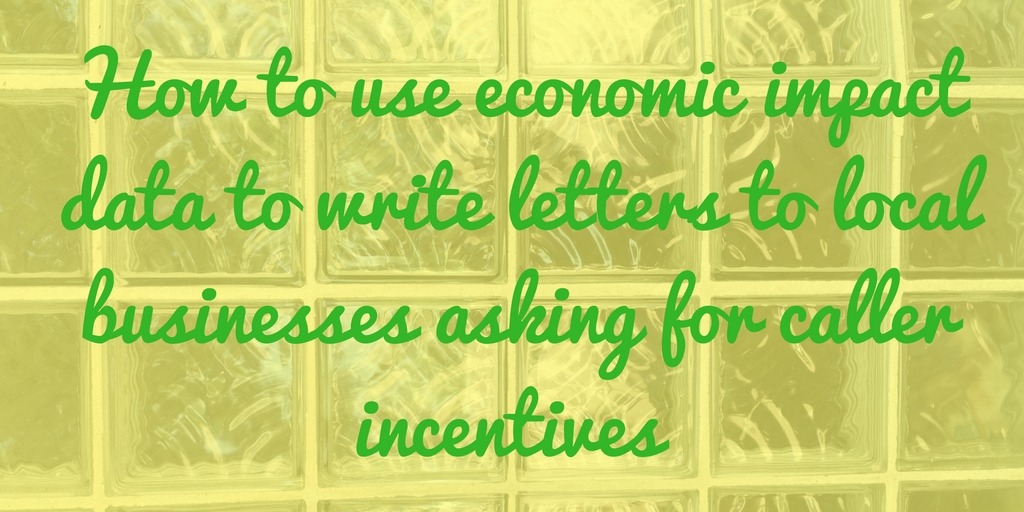
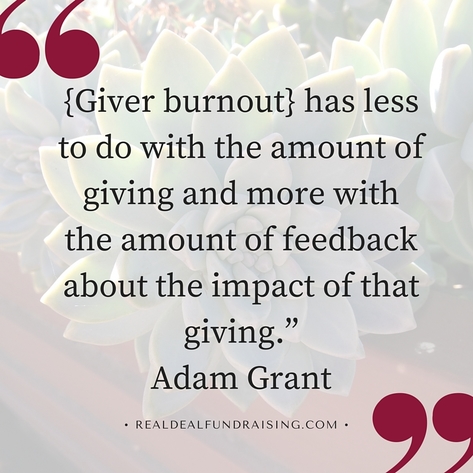
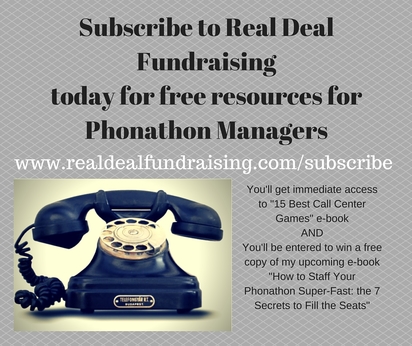
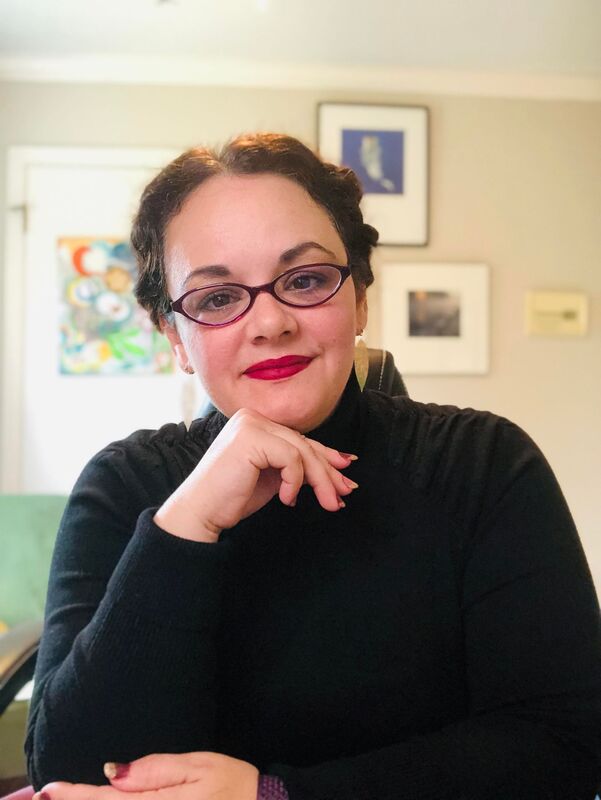
 RSS Feed
RSS Feed
